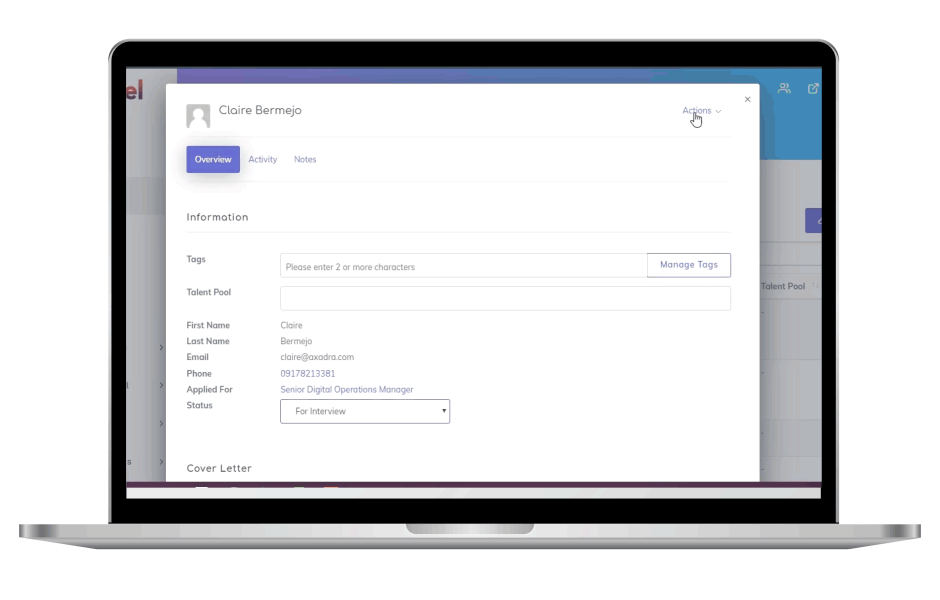Your business needs a strong workforce to ensure that everything is working smoothly in your company. Particularly, your workforce should consist of dedicated individuals who are highly qualified for the position they’re holding.
To ensure that your employees have the skills that you need, you must recruit them from trustworthy sources. You can find highly qualified talents from reputable job portals and recruit them from there. Another reliable source of talented professionals is employee referrals.
What are Employee Referrals?
Employee referral is a kind of program that most companies use to look for qualified individuals who can fill up a vacant position in their organization. It works by asking their existing employees to recommend candidates from their network whom they think fit the requirement of the job. In return, the organization provides its employees with employee referral bonuses or other types of incentives for every successful referral.
Employee Referral Pros and Cons
If you are still deciding whether to use employee referral as a recruitment strategy for your company, you should learn about its pros and cons. Acquiring more information regarding this recruitment method will allow you to determine if it’s the right approach for your organization.
Advantages of Employee Referrals
There’s a reason why employee referral is a preferred method among different companies. It’s because of all the advantages it offers.
Better Candidate Quality
When you ask employees to refer someone who can be their new colleague, they will strive to look for an applicant who has the skills to improve their output and lessen their daily workload. To accomplish this, they need to find a highly qualified individual who meets all the qualifications for the open position.
Additionally, you wouldn’t have to worry about any made-up references on a candidate’s resume. You can easily check their background and verify any information by talking with the employee who referred them.
Faster Hiring Time
Most companies struggle with their time-to-hire, which can take at least two weeks. This happens because sourcing candidates from various job portals and screening several resumes before shortlisting them is not an easy task.
Using recruitment automation tools can help expedite the regular hiring process, but it still can’t beat the time-to-fill when relying on employee referrals. In fact, it has been shown that referred candidates are 55% faster to hire than those sourced through job portals.
When your current employees help you get in touch with qualified applicants from their network, you don’t have to spend extra time scouring through job portals and looking through various resumes only to find one or two individuals who meet the position’s qualifications.
Cost-Efficient
Another advantage of employee referrals is their cost-efficiency. When you rely on employee referrals, you don’t have to spend money on job advertising and pay subscription fees to different job portals.
Additionally, you won’t need to hire a third-party recruitment agency to find qualified candidates for your company. Instead, you can count on the networks of your existing employees and trust them to help you find the applicant that you’re looking for. Although you still have to spend some money for referral bonuses, it still wouldn’t amount to how much you need to shell out for job ads and recruitment agencies.
Better Retention Rate
Organizations that rely on employee referral programs have better retention rates than those that use job portals and work with recruitment agencies. There are several factors that may cause this.
First, individuals who were referred by an existing employee have a better insight into the position and company culture. They can listen to the existing employee’s personal experiences in the company and decide whether they will fit into the organization.
Having a familiar face in the workplace can also contribute to the new employee’s experience in the company. By having an acquaintance or friend right at the start, the referred employee will feel comfortable in the company sooner and have a smoother journey in the organization.
Boosts Morale
When you ask your current employees for referrals, you are trusting them to find highly qualified individuals who can contribute enough to improve your company. Although this might not seem like a big responsibility, it could still boost your existing employee’s morale and make them feel that you value their discretion.
To ensure that you’re giving your employees the referral bonus they deserve, you should use a referral tracking program. This technology will help you track every referred candidate’s progress in the recruitment process and determine if your existing employee is due for an incentive.
Disadvantages of Employee Referrals
Similar to other recruitment strategies, employee referrals also have disadvantages that you should know. Learning about these cons early on will allow you to prepare for any challenges that you may encounter.
Biased Recommendations
Most of the time, employees have pure intentions when referring applicants to their organization. However, you cannot deny the fact that some individuals only refer candidates because they want to work with their friend or receive a referral bonus.
Some employees refer candidates who do not possess the right skills and knowledge for the position for their own gain. Although the referrer may think that they can coach the applicant to make up for their shortcomings, this can still negatively affect their productivity and, ultimately, cost the organization money.
Tension in the Workplace
Indeed, employee referrals often boost morale in the workplace. However, it can also cause a disadvantage, such as unnecessary tension, when not managed properly.
First, the referrer and the referred employee may be negatively received by their colleagues. This happens when the referred candidate was chosen over an internal promotion.
The referrer may also experience some hesitation in critiquing the output of the person they referred. This issue can negatively affect the work of both parties and impact your company’s processes.
Decreased Workforce Diversity
When existing employees refer candidates, they are more likely to recommend people in their network. This means that more often than not, the referred candidates will have the same character, skillset, and values as their referrer.
Although this isn’t always a problem, having employees of similar character can affect your company’s diversity. The decreased diversity may then cause your team to have fewer ideas and innovations. Ultimately, this issue can negatively impact your company’s performance and productivity.
Double Loss
Having a pair in your team that works well together is surely a benefit for your business. The easiest way to achieve this is to trust your current employees to refer candidates whom they think are qualified for the open position in the organization.
The synergy between the referrer and referred employee allows them to work seamlessly without experiencing too many problems. However, this partnership may become a disadvantage for your company when one of them decides to leave your organization.
Whether the other person decides to resign because of personal reasons, company politics, or a better opportunity, you still run the risk that their partner will follow suit. This will require you to hire two people to fill in the vacated positions.
Less Stringent Recruitment Process
When going through the regular recruitment process, most applicants have to pass a rigorous screening and a thorough interview process. However, this might not always be the case when it comes to employee referrals.
Sometimes, recruiters tend to slack off when screening referred candidates because they were recommended by a colleague. This is especially true if the referrer is an outstanding employee.
Taking it easy during the screening process may cause you to deal with a poorly performing employee down the line. To avoid this, make sure to treat every applicant, referred or not, the same. Have each candidate go through a rigorous recruitment process to help you determine their strengths and weaknesses right from the start.
Decide If Employee Referral is Right for Your Business
Now that you’ve learned about the different advantages and disadvantages of employee referral programs, you need to decide whether this is the right strategy to use for your company. Remember that recruitment strategies are not one-size-fits-all, so you must look at the unique needs of your organization before making a decision.














